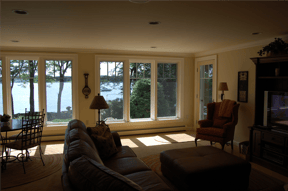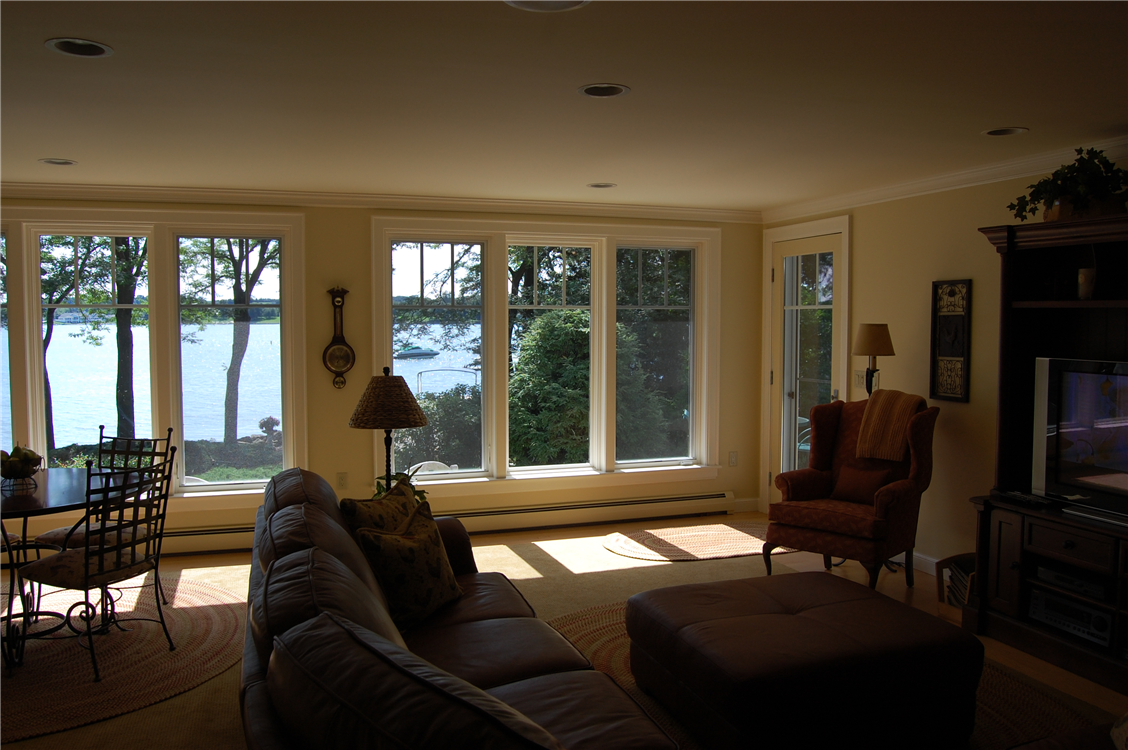 Homeowners hear a lot about replacement windows in television ads. You may have even received calls from telephone solicitors hawking their products but they provide little information. If your home needs new windows what are your best options?
Homeowners hear a lot about replacement windows in television ads. You may have even received calls from telephone solicitors hawking their products but they provide little information. If your home needs new windows what are your best options?
Here are six things to know that’ll help you choose the right replacement windows for your home:
-
Replacement Window Types
Replacement windows can be made of aluminum, fiberglass, vinyl or wood. Most of our customers select either vinyl or wood.
Vinyl windows come in an assortment of colors and once installed require no painting or staining. They are easy to clean and may be less expensive than wood. Vinyl or PVC is considered to be a “green” product because it is sustainable. PVC does not require burning or generate harmful gases in its production. Vinyl windows are also well insulated. You may want to check out the vinyl windows made by Thermal Industries. They offer a vinyl window with a real wood interior that can be painted or stained any way you want.
Wood windows have an aesthetic appeal and can be stained to match the décor of your home. The downside of wood replacement windows is that they do require painting or staining both at the point of installation and throughout the life of the window and they tend to be more expensive than vinyl windows.
-
Replacement Window Styles
Replacement windows come in a variety of styles, Double-hung, casement, sliders, bow and tilt widows are the most common. You can learn a lot about materials, styles and optional features by checking the websites of manufacturers. Here are a few that we use:
-
Energy Efficiency
Glass. Most replacement windows have double or triple paned glass for energy efficiency. When you select energy efficient windows look for the U-factor, which tells you how resistant the window is to heat transfer and the R-factor, which measures the heat flow through the window, or its heat conductivity. The R-factor measures insulation. What to look for are windows with a LOW U-factor (.30 or lower) and a HIGH R-factor – 3 to 3.7 in double pane windows and up to 5 in triple pane windows.
Glazing. Windows can have a Low-E coating or film to enhance the efficiency by blocking heat in the summer and retaining heat in winter months. They can also be filled with inert gases to increase insulation.
-
Installation
You can select great windows but unless they are installed properly they won’t perform well. It’s important to hire the right person for the job. You may want to check out our free “How to Hire a Contractor Kit”. Always check references and check for complaints on file with the Better Business Bureau. Be sure the contractor is insured and look for related certifications. If your home was built before 1978 the installer must be EPA certified for lead paint abatement.
-
Payback
According to Remodeling Magazine’s Cost vs. Value Report for 2011-2012, the average cost and return on investment (ROI) for replacing ten 3-by-5 double hung windows in our area are as follows:
- Vinyl window replacement: Cost = $11,904; ROI = $7,441 (63%)
- Wood window replacement: Cost = $12,858; ROI = $7,838 (61%)
- Upscale vinyl window replacement: Cost = $15,116; ROI = $9,167 (61%)
- Upscale wood window replacement: Cost = $19,787; ROI = $11,217 (57%)
-
Avoid Rip-offs
Some industries have a dark side. Consumer groups have issued alerts regarding the sales tactics used to sell replacement windows. The AARP is one such group and warns consumers to resist unsolicited sales presentations such as this one …”We are looking for a home in your neighborhood to install our windows at no cost to you…” If it sounds too good to be true, it is.
AARP advises consumers to check dealer claims about the eligibility of the product for tax credits; deal with only credible dealers and installers with proven track records; check references; and don’t make a final payment until the job is done to your satisfaction.
Finally, before selecting replacement windows talk with your contractor. A contractor is knowledgeable about products and may have ideas that will help you to determine the best option for your home.


 Homeowners hear a lot about replacement windows in television ads. You may have even received calls from telephone solicitors hawking their products but they provide little information.
Homeowners hear a lot about replacement windows in television ads. You may have even received calls from telephone solicitors hawking their products but they provide little information.